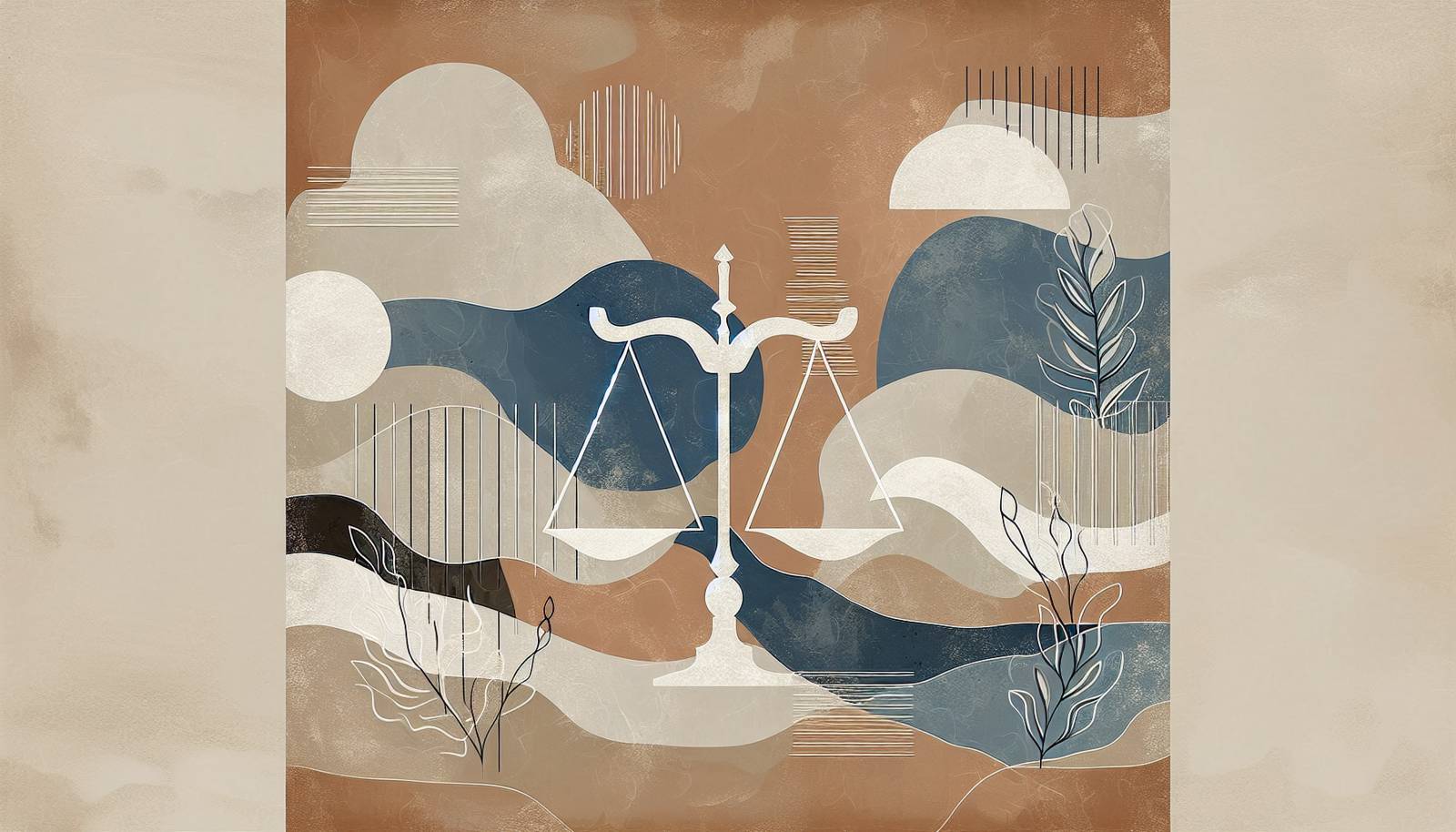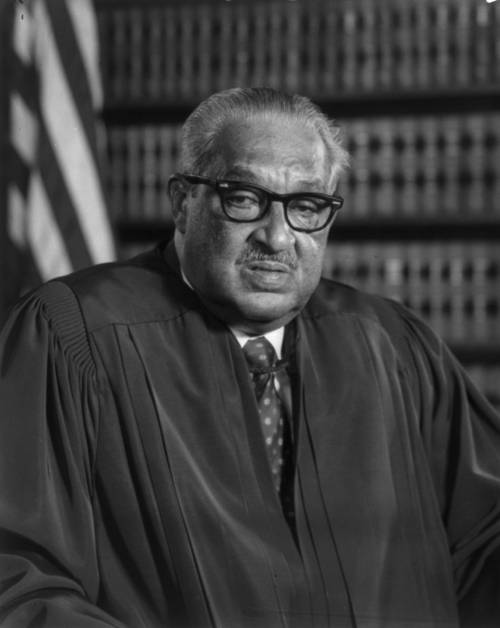
FAQ About Thurgood Marshall

Who was Thurgood Marshall?
Thurgood Marshall was the first African-American Justice of the U.S. Supreme Court, serving from 1967 to 1991. Before his appointment, he was a prominent civil rights lawyer best known for his victory in Brown v. Board of Education, which led to the desegregation of public schools in America. Marshall dedicated his life to fighting for racial equality and justice through the legal system.

What is Thurgood Marshall famous for?
Thurgood Marshall is most famous for his role as a civil rights lawyer and his landmark victory in Brown v. Board of Education, where he argued before the Supreme Court that racial segregation in public schools was unconstitutional. This case was pivotal in the movement to end racial segregation in the United States. Additionally, his career as the first African-American Supreme Court Justice cemented his legacy as a significant figure in American legal history.

When did Thurgood Marshall become a Supreme Court Justice?
Thurgood Marshall was appointed as a Supreme Court Justice on August 30, 1967. He served until his retirement on October 1, 1991. His appointment was a historic moment, marking the first time an African-American was appointed to the highest court in the United States.

What was Thurgood Marshall's role in Brown v. Board of Education?
Thurgood Marshall served as the chief attorney for the NAACP in Brown v. Board of Education. He argued that the "separate but equal" doctrine was inherently unequal, and the Supreme Court's unanimous decision in 1954 agreed with him. This pivotal case overturned Plessy v. Ferguson and led to the desegregation of public schools across the nation.

Where was Thurgood Marshall born?
Thurgood Marshall was born on July 2, 1908, in Baltimore, Maryland. His upbringing in a racially segregated city influenced his commitment to civil rights and his future career as a lawyer dedicated to fighting racial injustice.

What significant cases did Thurgood Marshall work on before joining the Supreme Court?
Before joining the Supreme Court, Thurgood Marshall was involved in several significant civil rights cases. Notably, he argued Shelley v. Kraemer (1948), which challenged racially restrictive housing covenants, and Sweatt v. Painter (1950), which paved the way for Brown v. Board of Education by challenging segregated law schools. He also played a vital role in Smith v. Allwright (1944), which struck down racially discriminatory voting practices in Texas.

How did Thurgood Marshall impact civil rights in the United States?
Thurgood Marshall had a profound impact on civil rights in the United States through his legal work with the NAACP, where he fought tirelessly against racial segregation and discrimination. His victory in Brown v. Board of Education directly contributed to dismantling the Jim Crow laws and promoting greater racial equality. As a Supreme Court Justice, Marshall continued to advocate for civil rights, fairness, and justice under the law throughout his career.

What education did Thurgood Marshall receive?
Thurgood Marshall attended Lincoln University in Pennsylvania for his undergraduate education, where he graduated cum laude in 1930. He then enrolled at Howard University School of Law, from which he graduated first in his class in 1933. At Howard, he was mentored by Charles Hamilton Houston, an influential figure who guided Marshall's dedication to civil rights law.

What honors did Thurgood Marshall receive during his lifetime?
Thurgood Marshall received numerous honors and recognitions for his contributions to civil rights and justice. He was awarded the Presidential Medal of Freedom posthumously in 1993. During his lifetime, he also received honorary degrees from several universities and colleges. His legacy continues to inspire subsequent generations of lawyers and activists fighting for equality and justice.

What was Thurgood Marshall's approach to legal advocacy?
Thurgood Marshall's approach to legal advocacy was strategic and centered around using the judiciary to dismantle structural racism and secure civil rights for African Americans. He believed in working within the legal system to challenge unjust laws and practices, and his meticulous preparation and persuasive arguments were key tools in his legal victories. Marshall's work with the NAACP demonstrated his effectiveness in using litigation to achieve social change.

Did Thurgood Marshall write any influential opinions as a Supreme Court Justice?
Yes, Thurgood Marshall wrote several influential opinions during his time on the Supreme Court. Noteworthy among them was his opinion in Stanley v. Illinois (1972), which strengthened parental rights, and his concurring opinion in Furman v. Georgia (1972), arguing against the death penalty's arbitrary application. His opinions frequently underscored his commitment to civil rights, individual liberties, and social justice.

How did Thurgood Marshall's upbringing influence his career in civil rights?
Thurgood Marshall's upbringing in a segregated Baltimore deeply influenced his dedication to civil rights. Born to a family that valued education and hard work, he was instilled with a strong sense of justice and equality by his parents. The racial discrimination he faced and observed throughout his early life motivated him to pursue a career in law as a means to combat systemic racism and advocate for equal rights for African Americans.

What challenges did Thurgood Marshall face in his career?
Thurgood Marshall faced numerous challenges throughout his career, particularly racial discrimination and resistance to desegregation. Working as an attorney, he encountered threats and hostility while arguing for equal rights and justice. Despite these challenges, his legal acumen and determination led to successful arguments in pivotal cases, ultimately transforming the American legal landscape and contributing to the advancement of civil rights.

What impact did Thurgood Marshall have on the U.S. legal system?
Thurgood Marshall had a lasting impact on the U.S. legal system through his work in challenging and dismantling systemic racism. His success in Brown v. Board of Education paved the way for further civil rights progress and set legal precedents that advanced equality. As a Supreme Court Justice, his opinions often reflected a profound concern for individual rights and social justice, influencing generations of legal thought and practice.

Did Thurgood Marshall participate in other civil rights movements?
While Thurgood Marshall was predominantly engaged in legal battles, his work had a significant influence on broader civil rights movements. Through his role at the NAACP and his arguments before the Supreme Court, he laid much of the legal groundwork that supported the Civil Rights Movement of the 1950s and 1960s. His efforts enabled activists to address and dismantle racial inequalities more effectively.

What was Thurgood Marshall's philosophy on justice?
Thurgood Marshall's philosophy on justice was rooted in the belief that the law should serve as an instrument for protecting the rights of the disenfranchised and promoting social equity. He consistently advocated for equal access to justice and the dismantling of discriminatory practices across society. Marshall saw the Constitution as a living document that required interpretation and application in ways that ensured fairness and justice for all.

What influence did Thurgood Marshall have on future generations of lawyers?
Thurgood Marshall has had a tremendous influence on future generations of lawyers, particularly those involved in civil rights advocacy. His career serves as a model for utilizing the legal system to address social injustices and fight for equality. Many lawyers view him as an inspiration, not only for his landmark victories in key civil rights cases but also for his lifelong commitment to fairness and justice.

How did Thurgood Marshall's resignation from the Supreme Court affect the court?
Thurgood Marshall's resignation from the Supreme Court in 1991 opened the way for a new appointee, Clarence Thomas, who succeeded him. Marshall's departure marked the end of a significant era wherein he consistently advocated for broad civil rights protections. His exit signaled a shift in the Court's composition toward more conservative interpretations of the Constitution, affecting subsequent decisions on civil rights and liberties.

Why is Thurgood Marshall considered a trailblazer?
Thurgood Marshall is considered a trailblazer because he broke significant racial barriers, becoming the first African-American Supreme Court Justice and achieving numerous victories in civil rights cases that transformed American legal landscapes. His relentless fight for justice and equality set precedents that transcended racial divides and inspired future generations to continue striving for social justice and equity.

What did Thurgood Marshall do after retiring from the Supreme Court?
After retiring from the Supreme Court, Thurgood Marshall continued to be involved in public service and civil rights advocacy until his passing in 1993. He remained vocal about issues concerning equal rights and justice, using his experience and respected voice to influence ongoing dialogue on civil rights. His legacy continued to impact the legal realm and inspire those fighting for equality and social justice.
